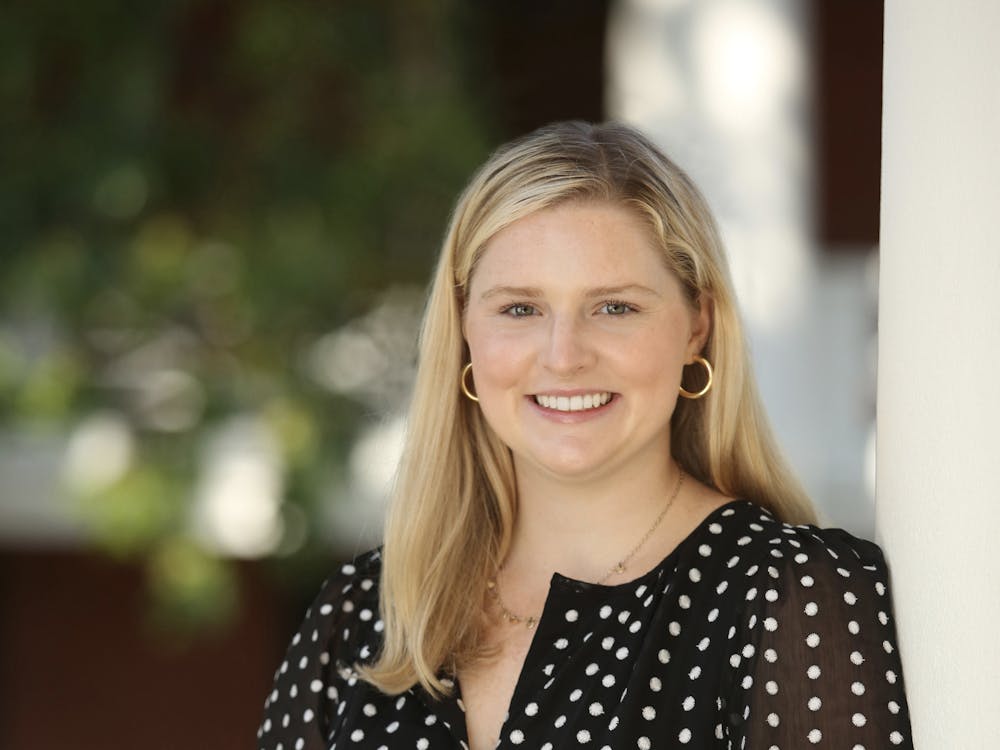I show up to my class 10 minutes early for the exam. I wait for the rest of my 25 classmates to arrive. The fluorescent lights of Dell melt the slush of dragged-in snow. It’s a Tuesday, and two students are absent. I recognized their faces at the few games I attended, proudly projected onto the flashy screen and yelled out by the baritone announcer. However, so far this semester, I have failed to see them attend more than 50 percent of this class. My professor doesn’t say anything – she already knows they won’t be coming.
I don’t want to argue that our school should abolish the athletic department, but I feel as if the current situation within the community allows, and even promotes, students to put athletics above their academic classes. If more time is spent preparing for games than going to class, are student athletes really students?
In addressing the issue of student athletes, I am lead to the following question as a broader examination of the University culture as a whole: how do you reconcile the principles on which this university was founded with a current administration that focuses on extra-curricular involvement over academic excellence? Student athletes are possibly the most visible examples of time-extensive extra-curricular involvement. Yet in this season of election campaigns and changed cover photos, slogans and chalking, the emphasis of our university can be seen as, ultimately, not “school.”
Many may argue that directing attention towards student athletes and those heavily involved in extracurricular activities is to not only disregard their many contributions to the University, but also to focus on an issue that seems insignificant. Activities teach intense time management and people who are involved in the University community, from my experience, feel more fulfilled and are generally happier in their four years here. My point in raising this issue is not to condemn those who are involved in athletics or the like, but rather to uncover the complexities of a school whose primary focus is not academic achievement.
Furthermore, I want to examine the stigma attached to those who are not involved with anything on Grounds and who choose to make their academics the primary focus of their time here. Hypothetically, this should be a valued goal, yet the people who are celebrated, land a room on the Lawn, speak at Convocation and are interviewed by the Cavalier Daily are not students who necessarily have any academic success. I want to argue that even though what these students have done for the community is admirable, there should be a lessened pressure by the University community to strive for this ideal over excellence in the classroom.
One of my friends was talking recently about her lack of involvement. She stated, “I feel like people look down on me because I don’t really do anything.” The mentality U.Va. creates makes students feel dissatisfied with themselves if they aren’t giving back to the community. Some would argue this is a productive, and ultimately beneficial, pressure. Instead, I believe if students find more joy and fulfillment in studying hard for classes, doing complex research in the lab and perfecting an English essay, the culture should accommodate and enforce this mentality.
Student athletes, committee chairs and founders of organization receive the laurels and commendation from the University, while those who are committed to keeping U.Va. a leader in academic fields are rarely celebrated. While I am the first to acknowledge a school’s job should be to educate students both inside and outside the classroom, our culture as a school has tipped too far in favoring extracurricular involvements over classes. As stated above, allowing athletes to miss multiple classes to accommodate a busy travel schedule should not be sanctioned.
In cheering on our winning teams, in holding up those who skip class to attend meetings, in enforcing this extracurricular culture, we are losing our emphasis on the ideal of a strong academic education as the primary goal of college. While I accept a balance is needed to ensure the most well-rounded education possible, I feel the University needs a re-stressing movement towards classroom success as the primary goal of its students.
Grace’s column runs biweekly Fridays. She can be reached at g.muth@cavalierdaily.com.





